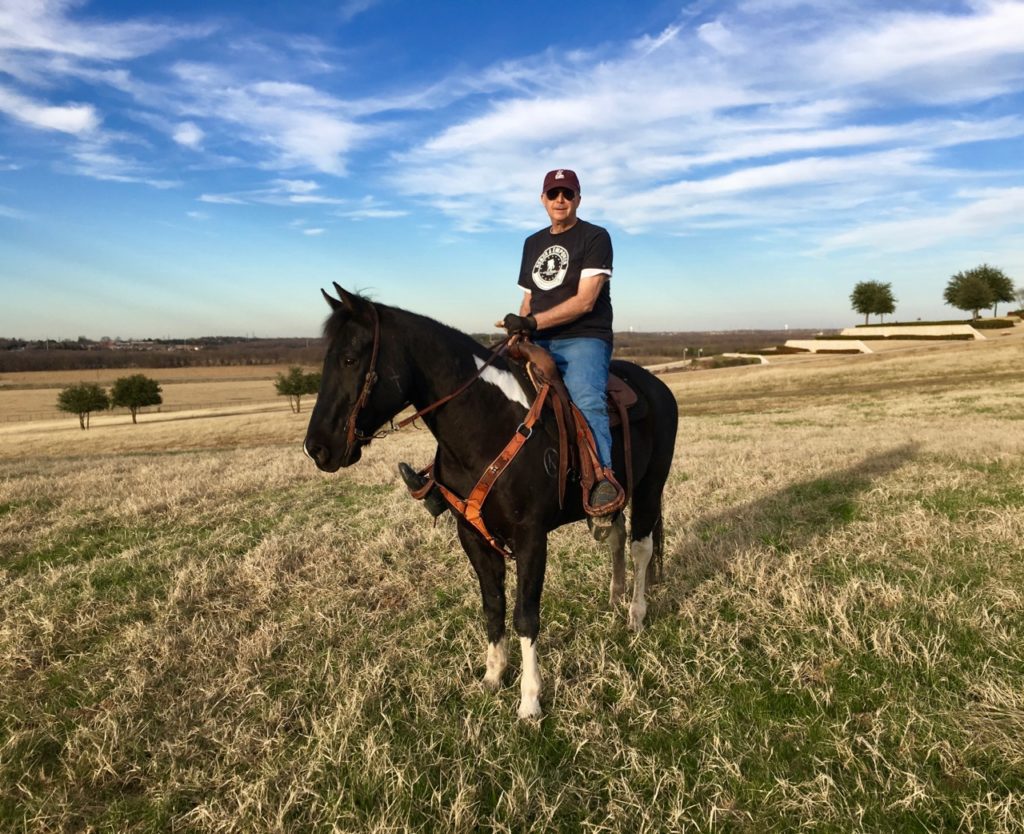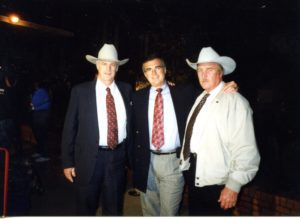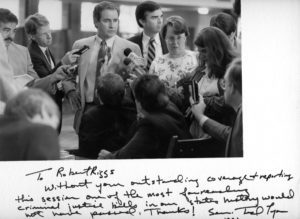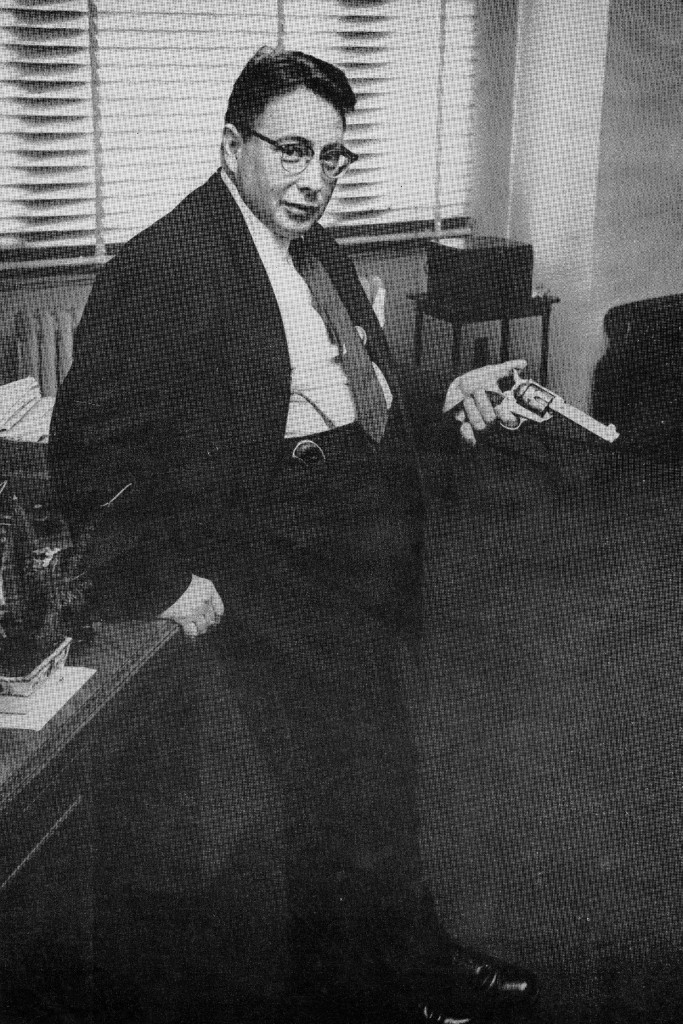The True Crime Reporter® Podcast by Robert Riggs takes listeners inside the crime scene tape with true stories from behind badges and behind bars
The Peabody Award-winning investigative reporter provides a rare glimpse into the psychology of crime and the procedural methodology of how investigators solve crimes.
Riggs’ unparalleled access to law enforcement and the criminal world makes True Crime Reporter® the one podcast that even detectives listen to.
Known as “Riggs” to his friends, he follows cases from handcuffs to prison cells.
True Crime Reporter® Podcast
The veteran content entrepreneur and master storyteller based the first season of the True Crime Reporter® Podcast on his investigation of serial killer Kenneth McDuff. Riggs exposed how McDuff, a former death row inmate, was released on parole in Texas under a cloud of corruption.
In 2021 the podcast was honored with a 25th Annual Webby Award for Best True Crime Podcast. Claire Graves, Executive Director of The Webby Awards, stated, “Honorees like Robert Riggs and the True Crime Reporter®’s podcast are setting the standard for innovation and creativity on the Internet. It is an incredible achievement to be selected among the best from the nearly 13,500 entries we received this year from 50 states and 70 countries.”
Freed To Kill – TV Documentary
Riggs as an Executive Producer spun off the podcast into a hit television documentary titled Freed To Kill, which premiered on Fox Nation Streaming in March 2022. The five-part series received a Telly Award for television documentary in May 2022. After watching the first episode, retired CBS News Anchor Bob Schieffer, who appeared in the series, said, “This is the story of pure evil, and you told it well.”
The documentary revealed how Riggs’ intrepid reporting style involves old-school “shoe leather” tactics – knocking on doors, tracking down sources, and uncovering facts. He embodies the “all we want are the facts, ma’am” ethos of the iconic TV show Dragnet.
Quintessential Investigative Reporter
His investigative stories sent corrupt officials to prison, told impactful stories that catalyzed changes in public policy and garnered praise from top journalism institutions as well as law enforcement.
Besides the Peabody Award, Riggs has received three coveted Alfred I. duPont Columbia University Journalism Awards for Investigative Reporting. The Peabody and duPont are respectively considered the broadcast TV equivalent of the Oscar and the Pulitzer.
Reported From 3 War Zones

Riggs was an embedded reporter with the Army unit that led the invasion of Iraq in 2003. His assignments have included covering the White House, Congress, Pentagon, and State Department during the administrations of President Ronald Reagan and President George H.W. Bush.
Among the three Alfred I. duPont Columbia Journalism Awards for Investigative Reporting, judges described his Gulf War report about the censorship of religious services for U.S. soldiers “as the story every other news organization missed.”
Breaking News

During his broadcast news career, Riggs covered the White House, Capitol Hill, The Pentagon, The State Department, the New York State Legislature, and the Texas Legislature.
Riggs has appeared as a guest correspondent on ABC Nightline with Ted Koppel. CBS 60 Minutes and CBS News Online featured his investigative reports from Iraq.
He reported from the “eye of the storm” of major breaking news stories, including the mass murder at the Luby’s Cafeteria in Texas, the 51-day Branch Davidian siege in Waco, the Oklahoma City bombing, the standoff with the Republic of Texas separatists, and numerous natural disasters.
His reports appeared on WFAA-TV Channel 8 News, KTVT-TV CBS-11, CBS Evening News, CBS 60 Minutes, ABC Nightline, CNN, and ESPN.
Terrorism

Before the September 11, 2001 terror attacks occurred, Riggs had been reporting on threats with weapons of mass destruction since 1999. In this connection, The University of Virginia Critical Incident Analysis Group and the FBI selected Riggs in 2000 as an expert member of a multi-disciplinary panel that examined the architecture of terrorism and the symbolism of its targets. Meeting near the birthplace of Thomas Jefferson, the panel produced a landmark report entitled “Threats to Symbols of American Democracy” that prophetically identified vulnerabilities that would later tragically unfold during the 9-11 attacks.
Riggs is a member of the FBI’s North Texas Chapter of InfraGard, which was formed in response to the 9/11 terror attacks. He is a longtime member of the Investigative Reporters & Editors (IRE). It is a nonprofit organization dedicated to improving investigative reporting around the world.
Born To Ride
Outside of reporting, Riggs embodies the frontier spirit of Texas through his love of horseback riding. Saddling up his horses offers an escape into nature that balances his intense work uncovering injustice and corruption.
Journalism Awards

Riggs’ peers in journalism recognized him as one of the nation’s premier investigative reporters. He received the coveted George Foster Peabody Award for Investigative Reporting and three Alfred I. duPont Columbia University Journalism Awards for Investigative Reporting.
Alfred I. duPont Columbia University Journalism Award was presented to Robert Riggs in 1997 for Investigative Reporting.
Dallas Crime Commission “Excellence in Crime Reporting Award”
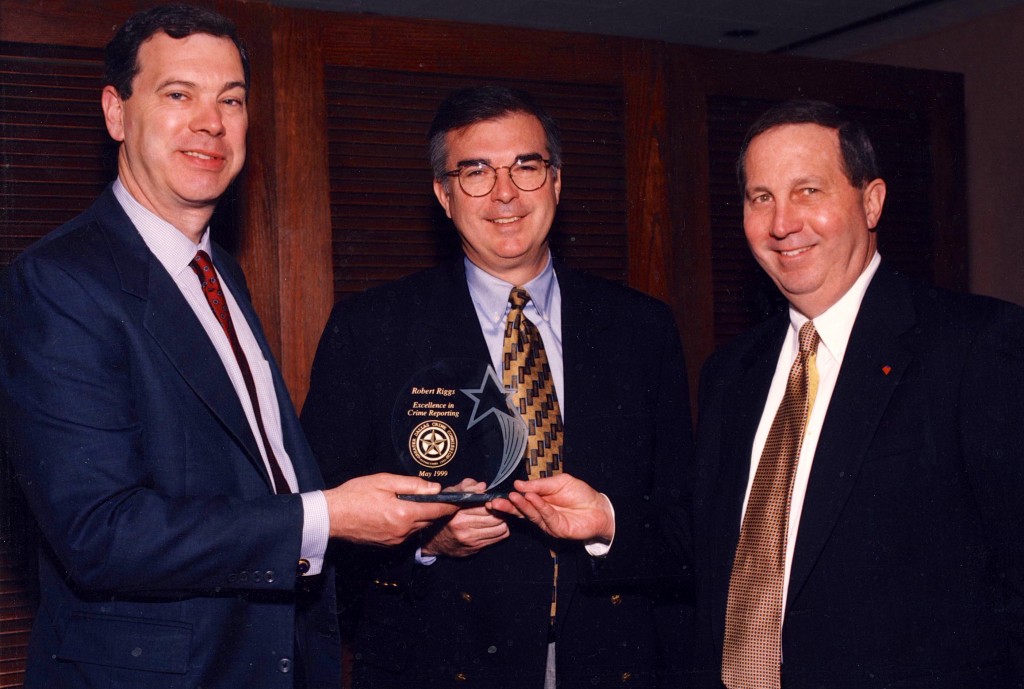
The Dallas Crime Commission awarded its first-ever “Excellence in Crime Reporting Award” to Riggs in 1999. His reports uncovered how black tar heroin traffickers from Mexico preyed on teenagers in Plano, Texas. Dozens of teens suffered deadly overdoses, unaware that the “Chiva” they were taking was heroin.
American Bar Association Silver Gavel Award

The American Bar Association awarded Riggs its Silver Gavel award in 1994 for his investigative series Free To Kill. He uncovered systemic corruption inside the Texas parole and prison systems. The investigation spanned more than three years and exposed allegations that Kenneth McDuff, a notorious serial killer, had paid bribes to receive early parole. Dubbed a “killing machine”, McDuff left a trail of bodies after his release from prison. He became the first person in Texas history to receive three death penalty convictions for murder.
Riggs discovered that McDuff’s release was just the tip of the iceberg. Dozens of violent criminals were released under a corrupt system. They spread a wave of terror across Texas in the 1990s.
Riggs’ investigative reports about the McDuff parole scandal prompted the federal prosecution of top state officials and the first overhaul of the Texas penal code in twenty years. The legislature enacted a mandatory life sentence for violent offenders named the “McDuff Law”.
Investigator for Congressman Wright Patman
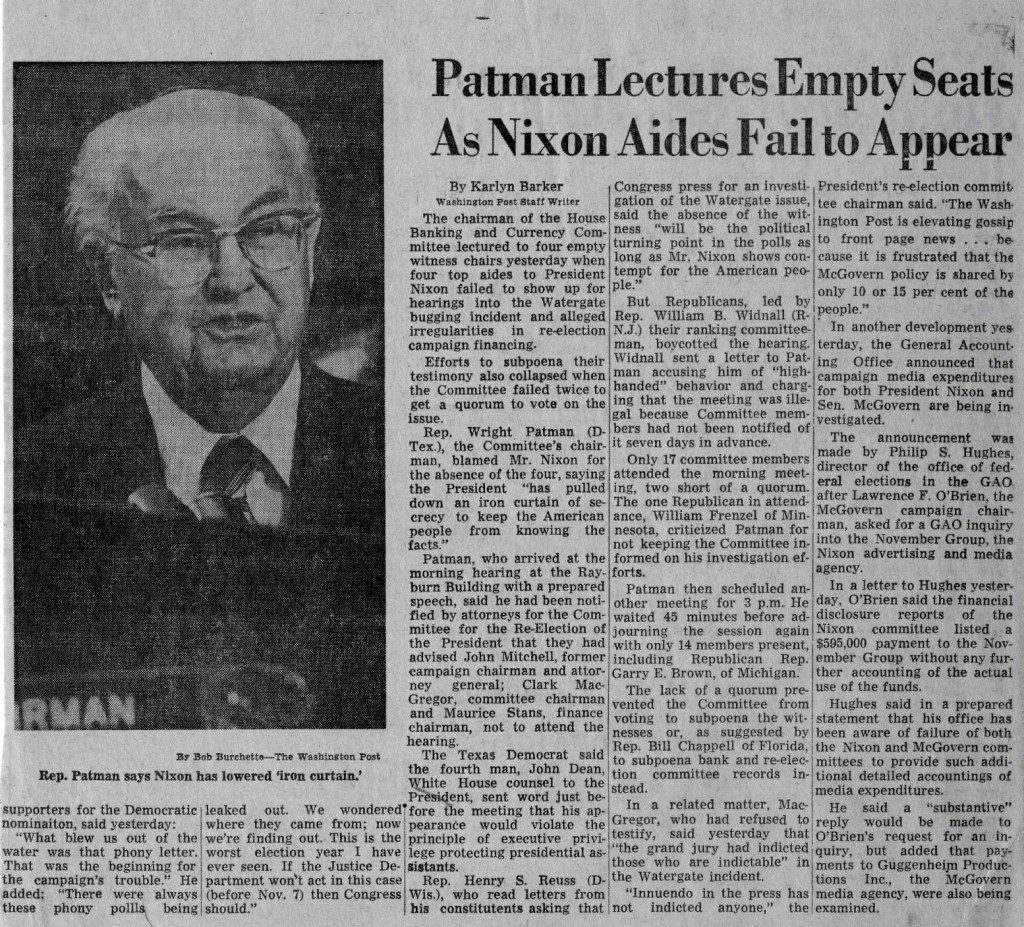
Prior to his journalism career, Riggs served as an investigator for the late Congressman Wright Patman of Texas. Representative Patman, as Chairman of the House Banking Committee, attempted to launch the first congressional investigation into the Watergate Scandal.
Patman’s Administrative Assistant, Baron I. Shacklette, a legendary investigator on Capitol Hill, helped Riggs hone his investigative skills.
Riggs served as the Chief Investigator for the Joint Committee on Defense Production. The Committee’s investigations picked up trails of corruption where the Watergate investigation left off. While working for the Committee, Riggs reported to its Joint Chairmen, Congressman Patman, and Senator William Proxmire.
The Committee’s investigation of a defense contractor’s bribery scheme contributed to the passage of the Foreign Corrupt Practices Act.
Riggs held a Top Secret security clearance from the Department of Defense and received training from both the GAO and U.S. Army.
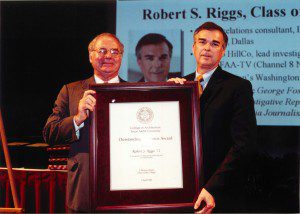
Texas A&M University Outstanding Alumnus Award
Texas A&M University honored Riggs as an Outstanding Alumnus from the College of Architecture in 2001. The College recognized his achievements in journalism.
Riggs was the first non-practicing architecture graduate to receive the award in its 100-year history.

